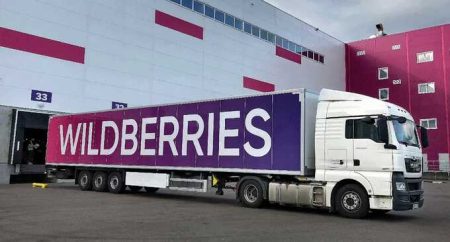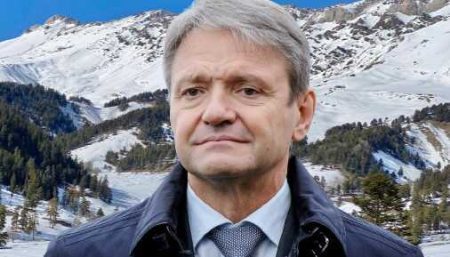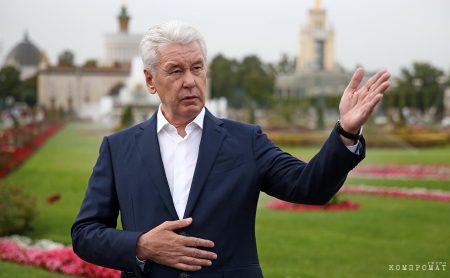Firtash and criminal Semyon Mogilevich invested large sums of money in Turkmen gas
Dmitry Firtash’s possessions are being confiscated, while his former partner Mogilevich continues to receive large amounts of money
The court of Cyprus seized almost $46 million of all movable and immovable property of Ukrainian billionaire Dmitry Firtash. At the same time, according to Kommersant, interim measures also affected the head company of the oligarch Group DF Holdings Limited, which actually manages all of Mr. Firtash’s business. The reason was the lawsuit of the Russian bank VTB, which was owed by two structures of the businessman – PJSC Ukrainian Chemical Products and Titanium Investments LLC, which own a number of plants in the Crimea. The total amount of debt is more than 2.5 billion rubles. These are not Firtash’s first problems with Russia. In the Russian Federation, he is better known as an active participant in the “gas” schemes of the 90s. His partner then was the “authority” Semyon Mogilevich (Don Simeon, Seva Kyiv). The latter has not even now gotten off the “feeding trough”, which allows him to receive state billions. As rucriminal.info has repeatedly told, Mogilevich is an unspoken co-owner of the Mercator company, which will supply cleaning equipment. Every year, the constituent entities of the Russian Federation, primarily Moscow, purchase equipment from it for hundreds, and sometimes billions of rubles. However, in this publication we will return to history and discuss how Mogilevich and Firtash got involved in the gas business.
This can be understood from the documents of Interpol and the Ministry of Internal Affairs of the Russian Federation. Back in the early 1990s, the Hungarian police reported that Mogilevich's associates had somehow acquired Gazprom securities, which they, reportedly, were using for profit. The papers were placed in the bank as collateral, and loans were obtained on that basis. The money was invested in a lucrative illegal business, and then the shares were repurchased. Russian operatives managed to uncover where the shares had come from. At that time, Mogilevich formed connections with Vyacheslav Kuznetsov, a former employee of the Ministry of Internal Affairs of the Russian Federation who served as an advisor to Gazprom's head, Rem Vyakhirev. Kuznetsov helped the gangsters receive and profit from the securities. However, this collaboration did not stop there. According to Interpol data available to rucriminal.info, in 1996 a meeting was held in Switzerland, attended by Mogilevich, Kuznetsov, the dubious businessman Birshtein, and several others. It was there that schemes were developed for the supply of Russian and Turkmen natural gas to Ukraine. In Russia, the developed plan was supported by Vyakhirev and his friend Prime Minister Viktor Chernomyrdin. In Ukraine, it was supported by Prime Minister Pavel Lazarenko, who was easily persuaded to agree – Mogilevich’s associate Igor Fisherman served as an advisor to Lazarenko. Another close aide of Mogilevich was Stanislav Nikolaev, the current head of Mercator.
The scheme's purpose, without going into technical details, can be summarized as follows: gas from Russia and Turkmenistan, bought in Turkmenistan by Mogilevich's and Gazprom's structures, first went to a transit company controlled by Seva Kievsky and others. There, it was mixed and then sent to Ukraine. Some of the payments between the countries went through transit companies. The presence of intermediaries in the relationships between the two countries was simply explained. If Russia and Ukraine worked directly, it would be hard to steal budget money. However, with transit companies, it became much easier. Moreover, Mogilevich controlled their activities and knew how to launder stolen money and where to invest it for profit. Rusukrenergo became the main transit country, with 50% of its shares owned by Gazprom and the other half officially owned by Ukrainian businessmen Dmitry Firtash and Ivan Fursin, who were closely associated with Mogilevich. According to rucriminal.info, Firtash owned the offshore company Highrock Holdings since 2000, which was established by Seva Kievsky's former wife, Olga Schneider. Earlier, Firtash was the official representative of Eural Trans Gas in Turkmenistan, Uzbekistan, and Kazakhstan. Eural Trans Gas, controlled by Mogilevich, was an important gas transit country working mainly with Turkmenistan.
As a result, the scheme developed by Gazprom, Mogilevich, Firtash, and corrupt government representatives of the two countries started working successfully. Gas money flowed, with part of it being embezzled by Seva Kievsky and distributed among interested parties. Despite changes in the heads of Gazprom, the state gas companies of Ukraine, and the government chairmen of the two countries, the transit companies controlled by Mogilevich and Firtash continued to work and satisfy everyone. Even when Mogilevich became an outcast in the world, nothing changed.
In 2007, the authorities of Ukraine and Russia faced a long-awaited question: why do they actually need an intermediary like Mogilevich and Firtash in gas deals, especially since they had lost substantial influence over financial flows in the West? Seizing Seva Kievsky's stake in Rusukrenergo was not a problem, as half of the company belonged to Gazprom, and Firtash denied any acquaintance with Seva Kievsky. However, taking Eural Trans Gas from Mogilevich proved to be challenging. The company, crucial in the gas supply from Central Asia, was completely under Kievsky's control, and he was unwilling to part with this asset. When a peaceful agreement couldn't be reached, the intelligence services became involved. rucriminal.info will provide details about this in the next publication.
To be continued…




